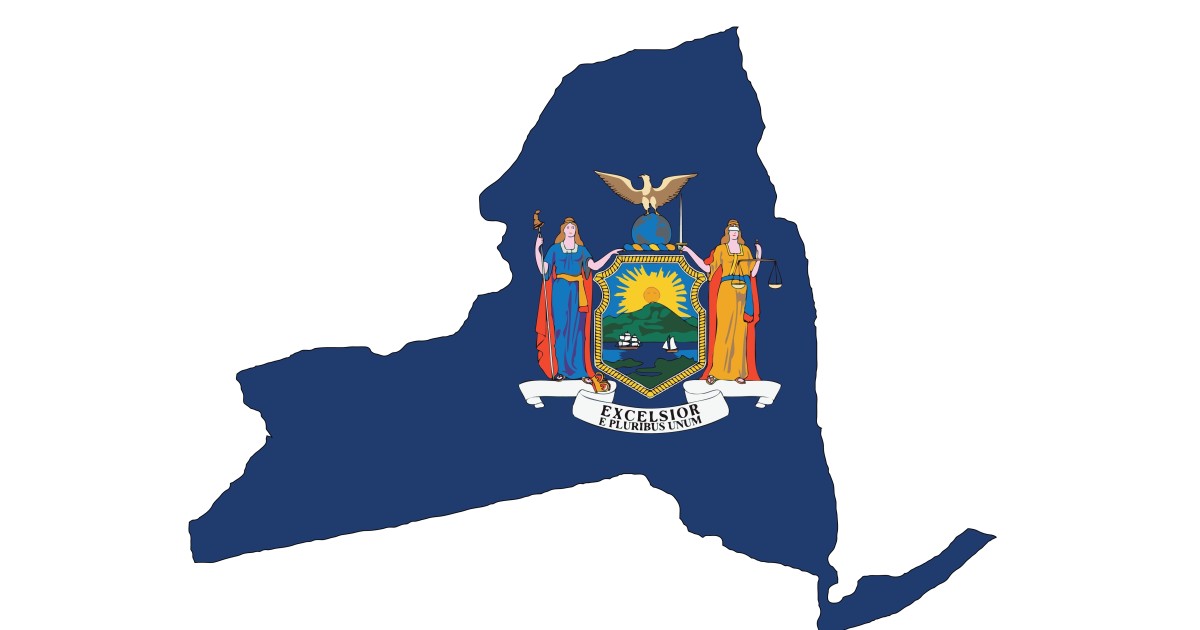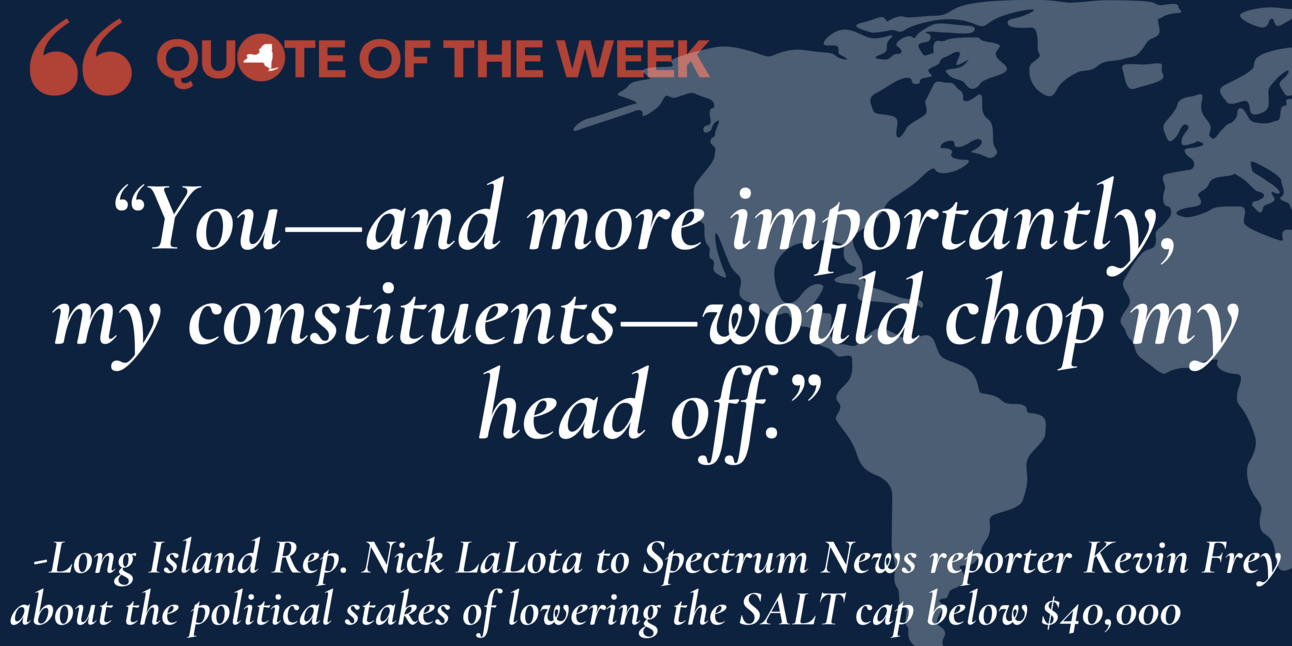- Monday Morning Memo
- Posts
- Gavel Down. . . For Now
Gavel Down. . . For Now
Legislature Adjourns, Bills Awaiting Signature, Primary Day Preview
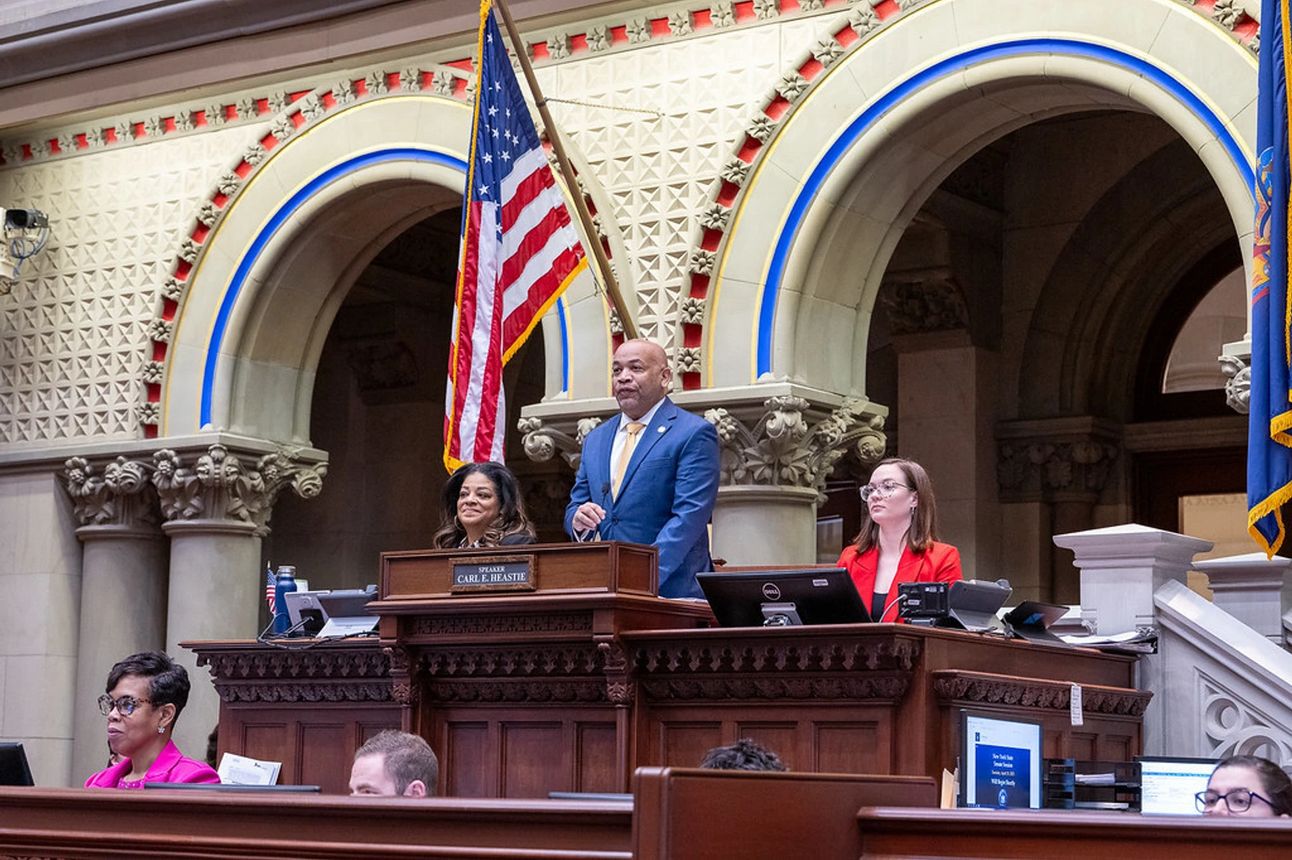
The NY Assembly closed the legislative session last Wednesday morning.
Good morning from somewhere—anywhere!—outside of Albany, New York. The 2025 legislative session officially came to an end last week, at least for now, with the Assembly gaveling out for the year just after midnight on Wednesday morning. The final numbers: 16,765 bills were introduced, with 995 bills passing the Assembly, 1,743 passing the Senate, and 856 bills passing both Houses that will now head to Governor Kathy Hochul’s desk before the end of the year.
Exclusive from New York State Senate Majority Leader @AndreaSCousins via @EMPIREREPORTNY: “We led. We listened. And we delivered.” empirereportnewyork.com/we-led-we-list…
— NYS Senate Democrats (@NYSenDems)
5:00 PM • Jun 18, 2025
What went down in the final days? Well, environmental advocates secured a win, albeit a watered-down one, with the Assembly passing legislation to end the subsidy for new natural gas hookups, known as the 100-foot rule. The provision was originally part of a much broader environmental package known as the NY HEAT Act, but the bill sponsors decided to go small after the original HEAT Act had been defeated in consecutive sessions.
Thrilled this bill passed! Utility companies shouldn’t have a blank check to expand polluting gas pipelines & force NYers to pay for it. This isn’t everything we hoped for, but it's a step toward a healthier & more affordable NY. TY to @LizKrueger & the outstanding advocates.
— Jo Anne Simon 文雅麗 🟧 (@JoAnneSimonBK52)
9:27 PM • Jun 16, 2025
Assembly Member Jo Anne Simon, a co-sponsor of the bill in the Assembly, offered, “This will incentivize hook-ups to electric and heat pumps, which are less expensive, more reliable, and better for our environment. This isn’t everything we hoped for, but this is a good step toward a healthier and more affordable New York.” First enacted in 1986, the 100-foot rule passes the costs of new natural gas hookups onto existing ratepayers to encourage a transition away from coal and oil. Now, the individual or developer requesting new natural gas service will be on the hook for the costs of bringing a new property into the surrounding natural gas infrastructure. Opponents of the provision have raised concerns over the immediate expenses and long-term availability of natural gas. Still, Assembly Speaker Carl Heastie indicated it was a fiscal decision, saying in a statement, “This legislation will keep families from having to pay their hard-earned money to subsidize the cost of new gas hookups. New Yorkers spend $200 million annually on connecting new homes to the gas system. This bill doesn’t remove the ability to connect to gas, or force anyone to stop using gas in their homes.”
Significantly, both chambers advanced a prison reform package following a tumultuous stretch for the state’s prison system this past year that included a number of high-profile inmate deaths, as well as a wildcat strike by corrections officers. If signed by Hochul, the reform package would increase camera coverage in prisons, expand the state Commission on Correction, and empower the Attorney General to investigate and prosecute corrections officers, if necessary.
Some advocates in the legislature would have preferred to see the legislation go further, for instance, including sentencing reform and new parole opportunities, but nonetheless, most see the bill as a meaningful step in the right direction. Senator Julia Salazar offered, “There is more work to do, including an expansion of pathways for release, but this is progress, it will make a meaningful difference, and I’m proud to stand behind it.”
Lawmakers also used the final day of session to clear up some confusion for the major league sports teams that travel to play in New York. A 2023 law increasing licensing standards for athletic trainers, scheduled to take effect in December, did not account for athletic trainers from other states who travel with professional sports teams, meaning the visiting teams’ trainers would—technically, at least—be barred from working with players when playing in New York.
The clarification bill, which had the support of Major League Baseball and the other three major sports leagues, would allow trainers to practice in New York for five days before an event or game and 3 days after, as long as they are in good standing in their home state. Senator Jamaal Bailey, a Democrat from the Bronx, sponsored the legislation and worked closely with New York City’s professional teams on the fix, saying, “I think this was important to all the teams. This might be the only time you've ever seen the Knicks and the Nets on the same page.”
More controversially, Democratic lawmakers passed a bill to give political parties the authority to remove members at will, with the state leadership of a party assuming that responsibility in the absence of a formally constituted county party. The measure, which was written in a way that effectively only applies to the Working Families Party (WFP), was in response to the 2024 Hudson Valley congressional election where Democrat Mondaire Jones lost the WFP line to Anthony Frascone, a Republican who did not campaign, but was nonetheless able to net 2% of the vote in that race! Jones ended up losing by 6%, but Democrats are not taking any chances, especially with a handful of competitive House races scheduled for next year. Republicans were—predictably—outraged, with GOP Assembly Member Chris Tague offering, "This isn’t about democracy, this isn’t about freedom of elections, this is about a certain congressional seat that another party has been smarter and worked harder in the last two election cycles and won.” This may be an obscure corner of Election Law, but it can be very significant.
After years of advocacy, both chambers advanced the Medical Aid in Dying Act, legislation that would allow an individual with a terminal illness to be prescribed life-ending drugs with the approval of two physicians. There was principled opposition within the Majority Conference Democrats in the Senate and Assembly, but not enough to block the bill. Hochul has not publicly taken a position on the issue. If signed, New York would become the 12th state to legalize medically-assisted suicide.
The FAIR Business Practices Act, our legislation to protect working families and small businesses from predatory lenders, abusive debt collectors, scams, and more, has passed the New York legislature.
I'm proud our state is stepping up to stop New Yorkers from being cheated.— NY AG James (@NewYorkStateAG)
1:49 PM • Jun 18, 2025
The Assembly joined the Senate in passing the FAIR Business Practice Act. A top priority of Attorney General Tish James, the legislation expands the powers of the Attorney General’s Office to pursue litigation against abusive or unfair business practices. Business groups united in opposition, but an amendment to remove the private right of action from the legislation ultimately helped get it across the finish line. This legislation was brought as a reaction to the dismantling of the Consumer Financial Protection Bureau and the movement in Washington away from any broader consumer protections.
In a similar effort to deal with the federal abdication of authority, specifically the federal National Labor Relations Board lacking a quorum, New York will be filling the gap, at least temporarily after lawmakers passed legislation enabling a state-level entity, the Public Employment Relations Board, to adjudicate labor disputes until the federal body resumes functioning.
In important news for those of us who roam the Empire State Plaza, the four 23-story towers in the Plaza will be renamed after New York’s most famous rivers. This will undoubtedly be an upgrade from their current titles: Agency Building 1, Agency Building 2, Agency Building 3, and Agency Building 4. Proposals in the past attempted to rename the buildings after famous New Yorkers, but as Senate sponsor Patricia Fahy said, “At least with rivers we don’t have to do the historical research to see if they’ve done anything terrible in their lives.”
Also worth noting is a measure that requires advertisers to disclose when they use deepfakes, or synthetic performers as they are called in the bill, in marketing or other digital media material.
Perhaps the most high-profile piece of legislation that did not pass was the Packaging Reduction & Recycling Infrastructure Act, which would mandate a 30% reduction in packaging over the next 12 years and require companies earning more than $5 million to contribute towards waste reduction initiatives. Advocates had hoped the measure would reach the finish line after passing the Senate, and although the bill moved through committee for the second year, it was never brought to the floor for a vote. Assembly Member Deborah Glick, a sponsor and chair of the Committee on Environmental Conservation, said, “It is disappointing. There’s no question the public wants us to act on these issues, and especially if we want to energize young voters and get them to feel that there is, in fact, a response from government to their concerns.” Glick had said publicly that she had the votes to pass the bill within the Democratic Caucus. The bill was one of the most lobbied bills this session, with intense pushback from well-known companies like L’Oreal, Coca-Cola, Keurig, Dr. Pepper, and Heineken.
Advocates Decry NYS Assembly Leadership Inaction to “Turn off the Tap” on Toxics to Protect New Yorkers’ Health
— Judith Enck (@enckj)
12:02 PM • Jun 19, 2025
Judith Enck, a former EPA regional administrator and leader of Beyond Plastics, criticized Speaker Heastie for failing to bring the bill to the floor, saying, “There was a time when previous speakers of the Assembly stood up for protecting public health and the environment. That time has passed.” Heastie took umbrage, declaring Enck was engaged in “lazy advocacy that expects a top-down approach from the Speaker. Contrary to popular belief, I am the most accurate vote counter in the Assembly, so I have three words for Ms. Enck: ‘Continue the work.” Heastie also defended his House: “Any suggestion that the Assembly doesn't take protecting the environment seriously is ridiculous and counter-factual.” Enck is not backing down. “The report is that the Speaker said he convened 14 members of the Assembly, who said they were yes votes, and they told the Speaker they were reluctant yes votes,” Enck said. “So they were reluctant, but they were yes votes. I’m reluctant to go to the dentist, but I go because it’s the right thing to do.” She continued to push those “reluctant” votes: “The Speaker is right: he is much better at vote counting than I am,” Enck said. “I think the disagreement is the reluctant yes votes. I think he wants them off the hook. I want them to represent their constituents and stand up for a clean environment.” This was already a sensitive issue, but our experience is that calling out the Speaker—this one or his predecessors—is a great way to get press, but a terrible way to get legislation through the Assembly. We will be watching it closely in 2026.
The 2025 Legislative Session is in the books. What overall grade would you give lawmakers on the policies advanced this term? Weigh in below!
Although the regular legislative session is concluded, lawmakers plan to return to Albany later this year to respond to any meaningful federal cuts or other actions precipitated by the “Big, Beautiful Bill.”
In the meantime, the politics continues. On the GOP side, both Rep. Elise Stefanik (R-NY) and Rep. Mike Lawler (R-NY) are scrapping for position as they consider formally challenging Hochul in next year’s gubernatorial race. A recent poll from Brock McCleary of Harper Polling found that Lawler has a better chance of unseating the incumbent governor than Stefanik, largely due to Lawler’s increased appeal among self-described moderates.
According to the poll, Hochul leads Lawler 48%-41% compared to a 50.1%-38.8% margin over Stefanik. When respondents were informed of the candidates’ records, Hochul’s lead over Lawler shrank to 44%-43.4%, and 46%-42.6% over Stefanik. Both potential candidates hold a nearly 20-point lead over Hochul on Long Island, but Lawler runs as well or better than Stefanik in every Upstate region, including the areas of the North Country that make up Stefanik’s current Congressional district. Alex deGrasse, a senior campaign advisor for Stefanik, dismissed the poll’s findings saying, “The Upstate polling numbers alone are laughable. Those who say they should run away from President Trump and MAGA, like Lawler and his campaign, are mistaken. To win in New York, you will need to energize the Trump Republican base and win independents and Democrats, which Elise has done cycle after cycle. Elise is the strongest candidate—and frankly the only candidate—who can build upon the 2022 success of pro-Trump candidate Lee Zeldin and finally end the tyranny of Kathy Hochul.” The horse race polling, of course, is meaningless at this time of year, but the wrangling is fun to watch. In reality, whichever candidate has the endorsement of President Trump will be the nominee.
Across the aisle, Hochul is dealing with her own primary challenge from Lt. Governor Antonio Delgado. This week featured renewed calls for Delgado to resign, as well as his move towards her left flank with a declaration that he would consider raising taxes à la Assembly Member Zohran Mamdani’s “Tax the Rich” mayoral campaign.
Nonetheless, it was Hochul who looked very gubernatorial—boss even—marching out of 26 Federal Plaza having secured the release of New York City Comptroller Brad Lander, following his arrest by federal immigration authorities. Hochul called the arrest “bullshit.” Lander was released into Hochul’s custody and was ultimately not charged.
Last week, we asked Monday Morning Memo readers if they were participating in early voting for Primary Day. Check out the poll results and feedback below!
Democratic primary elections will take place across the state on Tuesday. Here is a brief overview of some of the high-profile races for mayor:
New York City
Candidates: Andrew Cuomo, Zohran Mamdani, Brad Lander, Adrienne Adams, Scott Stringer, Jessica Ramos, Zellnor Myrie, Michael Blake, Whitney Tilson, Jim Walden, Curtis Sliwa
With incumbent Mayor Eric Adams forgoing the Democratic Primary to run as an independent, he has ceded the spotlight to former Governor Andrew Cuomo, who has dominated the polling, fundraising, the independent expenditures, and endorsements. Cuomo has also, as usual, been adept at managing the press coverage of the race, although his campaign has made some uncharacteristic unforced errors, mistakes that have drawn press scrutiny, but are unlikely to move voters. On the other side of the Democratic spectrum, Assembly Member Zohran Mamdani has waged a compelling campaign, energizing the progressive left and earning endorsements from AOC and Bernie Sanders. Lander has been slowly raising his profile, including a recent arrest by ICE that led to national news coverage. The decision by Lander and Mamdani to cross-endorse is significant.
How ranked-choice voting plays out will be key, especially because four years ago, the ranked-choice made little difference to the splintered field of progressives. With no candidate polling above 50% this year, there will be a delay of a week before a winner is known. The Board of Elections' Ranked Choice Vote algorithm will be run on Tuesday, July 1, at noon. That lag allows all mail-in and absentee ballots to reach the BOE offices and provides for the physical process of ranked-choice. Election night results are transmitted electronically from poll sites, but Vincent Ignizio, Deputy Executive Director of the city’s Board of Elections, says, “[Ranked Choice Vote] algorithm is run through sticks that are actually in the machines. So, we have to get all those machines back from across the city, which is over 3,000 machines, bring them back to our warehouses, pull those sticks and run them with what’s called the cast-vote record.” We will be watching.
Albany
Candidates: Dorcey Applyrs, Corey Ellis, Carolyn McLaughlin, Dan Cerutti
Much of this race has centered on public safety, including a recent “law-and-order” scandal involving campaign lawn signs being stolen and tracked down via an AirTag. One of the other significant factors in the race is how best to spend the political capital of the $400 million aid package recently approved in the State Budget. Lifted to fruition by Hochul, the state money is a hard-fought victory for State Senator Pat Fahy and Assembly Member Gabriella Romero.
Albany Chief City Auditor Dorcey Applyrs and tech executive Dan Cerutti have led the field in fundraising, while Applyrs has secured support from powerful allies, including Attorney General Letitia James and Assembly Speaker Carl Heastie. Applyrs’ strong coalition includes the Working Families Party and important labor unions, including 1199 SEIU and CWA. The Times Union endorsed Applyrs, noting that she brings “a realistic agenda, the experience to make it happen, and a sense of caring and enthusiasm for the city she wants to lead.” Much of the media conversation has centered on presenting this contest as a two-person race between Applyrs as the insider versus Cerutti as the outsider.
Albany Common Council President Corey Ellis and Albany County Legislator Carolyn McLaughlin also have notable name recognition and have the potential to pull votes—especially in the Black community—from Applyrs. If turnout is average or low for this primary, that could give Cerutti an opening to pull off an upset and secure a plurality in the winner-take-all vote.
Syracuse
Candidates: Sharon Owens, Patrick Hogan, Chol Majok
This has largely been a two-candidate race between Deputy Mayor Sharon Owens and Syracuse Common Councilor Patrick Hogan, both of whom have racked up an impressive slate of endorsements. Owens, the deputy to Mayor Ben Walsh for eight years, has his support in the June 24 Democratic mayoral primary, along with endorsements from Syracuse City School District Superintendent Anthony Davis and Sen. Rachel May. Hogan is endorsed by Sen. Chris Ryan, Assembly Members William Magnarelli and Pamela Hunter, and Common Council President Helen Hudson.
The next Syracuse Mayor will be presiding over transformational change given the Interstate-81 infrastructure project, the impact of Micron, ongoing conversations and actions on public housing, and the renegotiation of the sales tax split with Onondaga County.
In their endorsement of Owens, the Syracuse Post-Standard noted: “Owens has both the relationships and the temperament to collaborate effectively with state and county governments, the business community and the nonprofit sector to keep Syracuse’s momentum going.” They also had kind words for Majok, an at-large councilor, as an “inspiring example of a refugee who seized the opportunities this country offers and lives his belief in democracy every day.” However, they qualified their support by noting that “a more experienced hand is necessary at this critical juncture.”
While Owens has lauded her experience as an effective manager, she has been criticized for not preventing the collapse of funding for a children’s center that was meant to be a foundational public housing project for the Syracuse Housing Authority. Hogan has campaigned as a detail-oriented micromanager, but Hogan and his fellow councilors received substantial criticism in their approach to cutting Mayor Walsh’s proposed budget without any negotiation or public discussion.
Rochester
Candidates: Malik Evans, Mary Lupien, Shashi Sinha
Incumbent Mayor Malik Evans is facing two primary challenges from his left flank, with Rochester City Council Member Mary Lupien and businessperson Shashi Sinha running on policies like universal basic income and a drastic expansion of housing development. Evans has been endorsed by several key unions and the Monroe County Democratic Party, but the Working Families Party, which endorsed Evans four years ago, has decided against endorsing any candidate in this race.
Public safety has had a starring role in the campaign. Evans has touted the Office of Violence Prevention, a city initiative that has shown results in reducing shootings. Evans has also actively campaigned to continue the replacement of every single lead pipe in Rochester by 2030. Monroe County Executive Adam Bello also recently endorsed Mayor Evans, citing a “historic partnership built on collaboration, shared purpose and a commitment to improving the lives of the people [they] serve.” East District Councilmember Mary Lupien has branded her campaign as “Mary’s Guarantee,” presenting guaranteed income, housing, funding for youth, and response as responsible rather than radical governance.
Buffalo
Candidates: Chris Scanlon, Sean Ryan, Garnell Whitfield Jr., Rasheed Wyatt, Anthony Tyson-Thompson
This will be the first Democratic primary election for mayor in Buffalo since 2001 without Byron Brown on the ballot. The crowded primary field is led by Acting Mayor Chris Scanlon and State Senator Sean Ryan, who have both landed key endorsements and have been the strongest fundraisers.
Scanlon has a reliable base of political support in South Buffalo built over the twelve years he spent on the Common Council. One of Scanlon’s significant labor endorsements is the Buffalo PBA, while Ryan has received the support of the PBA of NYS (representing a variety of police officers employed by various state agencies). Scanlon’s campaign has received questions about using Buffalo police officers in his ads, potentially violating Election Law. Ryan has campaigned on Scanlon being “Carl Paladino’s pick” and aggressively sought to brand Scanlon with Paladino.
Ryan has built a strong coalition of endorsements, including the Erie County Democratic Party and the Working Families Party, along with robust support from labor unions highlighted by the Buffalo Central Labor Council (AFL-CIO), CWA, UAW, Carpenters, Buffalo Teachers Federation, the Operating Engineers, and many other trade unions.
Both Ryan and Scanlon have focused on earning support on the East Side of Buffalo. Ryan recently announced the endorsements of State Senator April Baskin and former County Legislator Betty Jean Grant, while Scanlon has received the support of Assembly Majority Leader Crystal Peoples-Stokes. Ryan comes into the race with political strength on the North and West Sides of Buffalo, while Scanlon's political base is South Buffalo.
You can find your Primary Day polling place here.
Tune in to News 4 Buffalo for expert Primary Day analysis on the mayor’s race in Buffalo and other key contests, delivered by our own Jack O’Donnell right after the polls close at 9 p.m.
In Washington, D.C., the Senate Finance Committee released the highly anticipated legislative text of their section of the “big, beautiful bill” that GOP leadership and the White House are trying to muscle through Congress before July 4th. While Republicans control both chambers and the White House, internal divisions and differing priorities among the House and Senate have complicated the path for House Speaker Mike Johnson (R-LA) and Senate Majority Leader John Thune (R-ND). Johnson cleared the first big hurdle by advancing the bill out of the House, but Thune and his conference have made changes to get it through the Senate that could threaten the bill’s prospects when it is returned to the House.
One of those major differences is playing out here in New York (and New Jersey and California). The language released by the Senate Finance Committee maintains the current $10,000 cap on the state and local tax (SALT) deduction—something that could prove to be a major snag in the House. Speaker Johnson raised the cap to $40,000 in the House proposal to win over a handful of Republicans from blue states, but with no GOP Senators representing high-tax states like New York or California, Senate fiscal hawks are pushing to keep the $10,000 cap to lessen the bill’s impact on the deficit. Lawler, one of the so-called “SALT Republicans,” has already vowed to vote against the bill when it is returned to the House if it does not keep the increased cap, saying in a statement, “After engaging in good faith negotiations, we were able to increase the cap on SALT from $10,000 to $40,000. That is the deal, and I will not accept a penny less. If the Senate reduces the SALT number, I will vote NO, and the bill will fail in the House.” Senate appropriators have insisted the $10,000 number is simply a placeholder so the Congressional Budget Office (CBO) can begin scoring the bill while negotiations continue.
Congratulations to the newly-elected officers and directors for the 2025-2026 term of the Bar Association of the Erie County Board, entrusted with upholding the organization's commitment to education, professional integrity, and justice, and especially to Vice President, President-Elect Maura K. O’Donnell.
Maura brings strong professional experience to the position, having worked as an Assistant District Attorney, Assistant U.S. Attorney, Regional Director of the Medicaid Fraud Unit, and now as an Associate General Counsel. More importantly, Maura brings to the role a commitment to fairness and justice, and an unshakable dedication to improving our community. I’m so very proud of you, sister! The future is promising under your leadership. |  VP, President-Elect Maura K. O’Donnell |
Finally, the MAGA movement has its own private club and restaurant in D.C. Now Trump acolytes have their own tailor, too. A Pentecostal pastor from Mississippi is serving a rapidly expanding roster of lawmakers, aides, and White House staff who tend to favor snug fits and lots of pro-Trump flair. Check it out! |

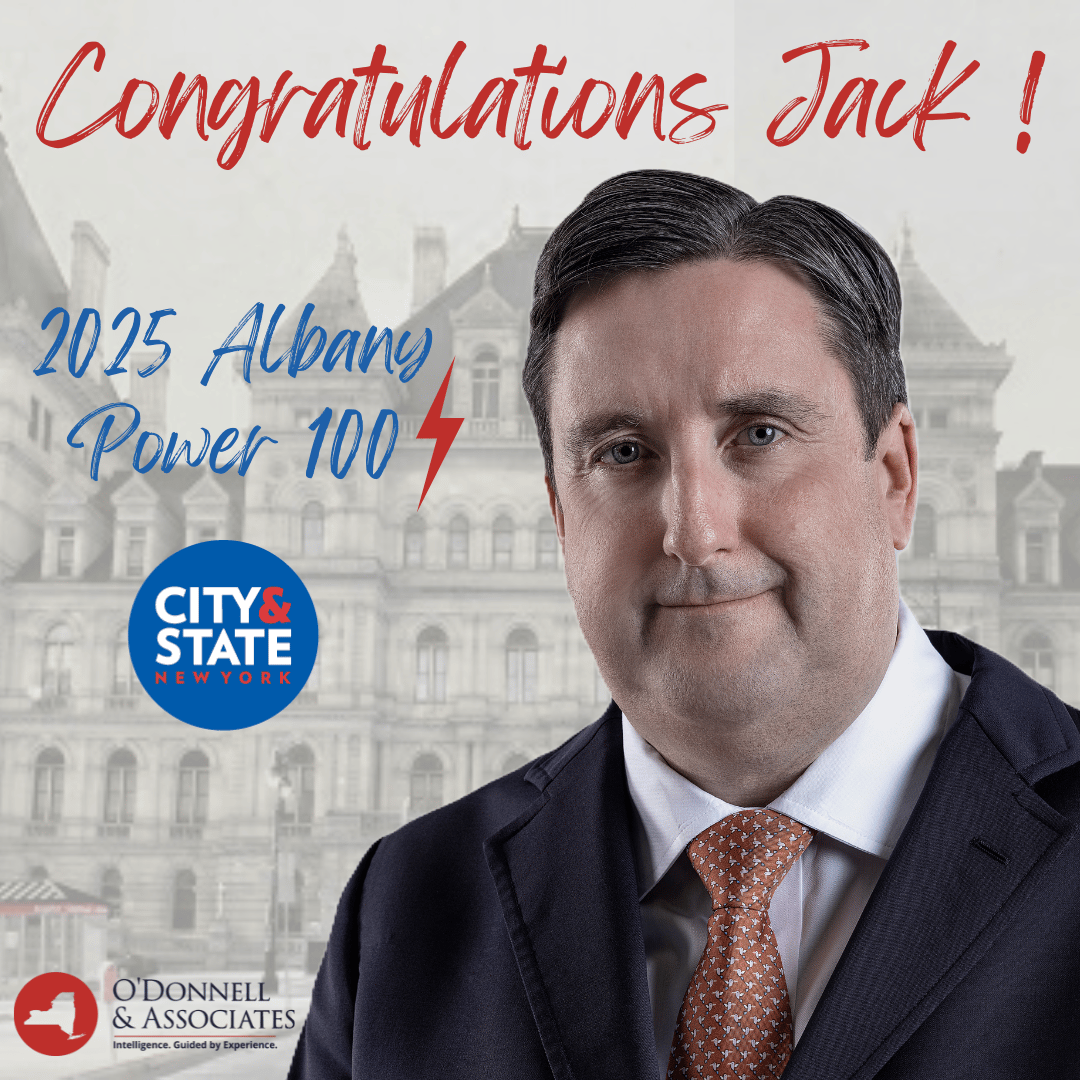
Congratulations to our Jack O’Donnell, who was named to the 2025 Albany Power 100 list by City and State NY.
Jack is proud to be recognized alongside our partners in government on this esteemed list of NY power players.
City and State NY writes: Jack O’Donnell has had his finger on the political pulse of Western New York for 25 years, but his reach is statewide. After getting his start under U.S. Sen. Chuck Schumer, O’Donnell founded his firm in 2001 and established it as a leader in economic development, fintech, and cultural institutions. O’Donnell lobbied for a state Office of Gun Violence Prevention and passage of the bell-to-bell cellphone ban in schools. O’Donnell also secured state funding for the town of Tonawanda, the American Museum of Natural History, and the University at Buffalo.
How can we help you? Connect with Jack!

Listen on your favorite platform! |  Jack on the last-minute bill blitz in Albany and more in his Monday Morning Minute: 🎙️Significant bills that passed the Legislature 🎙️Debrief of Gov. Hochul’s grilling on Capitol Hill & more nasty politics 🎙️What Jack would be if he weren’t a lobbyist 🎙️Attaboy for a Junior Associate |

Client News

The 2025 NY Legislative Session is in the books. What overall grade would you give lawmakers on the policies advanced this term? |
Results of the Last Poll
Early voting for the New York State Primary Election is currently underway. Will you be casting your ballot before June 24th, Primary Day?
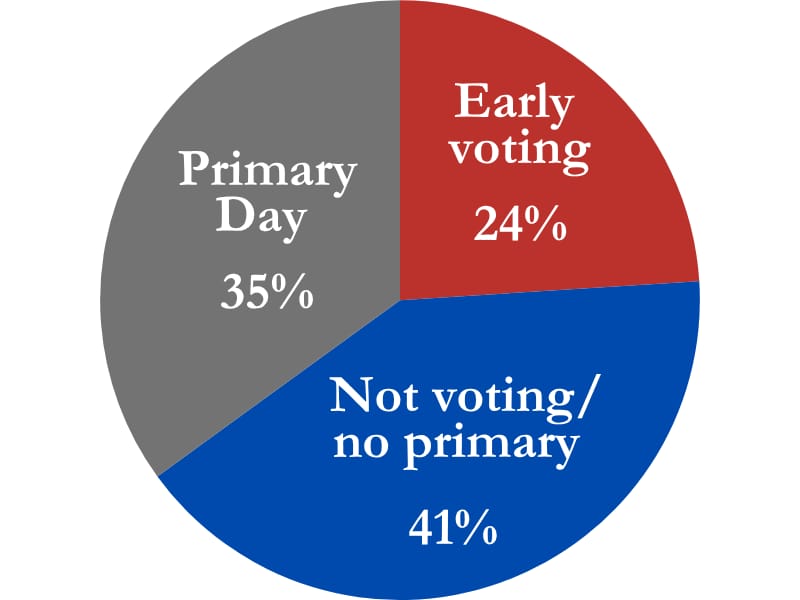
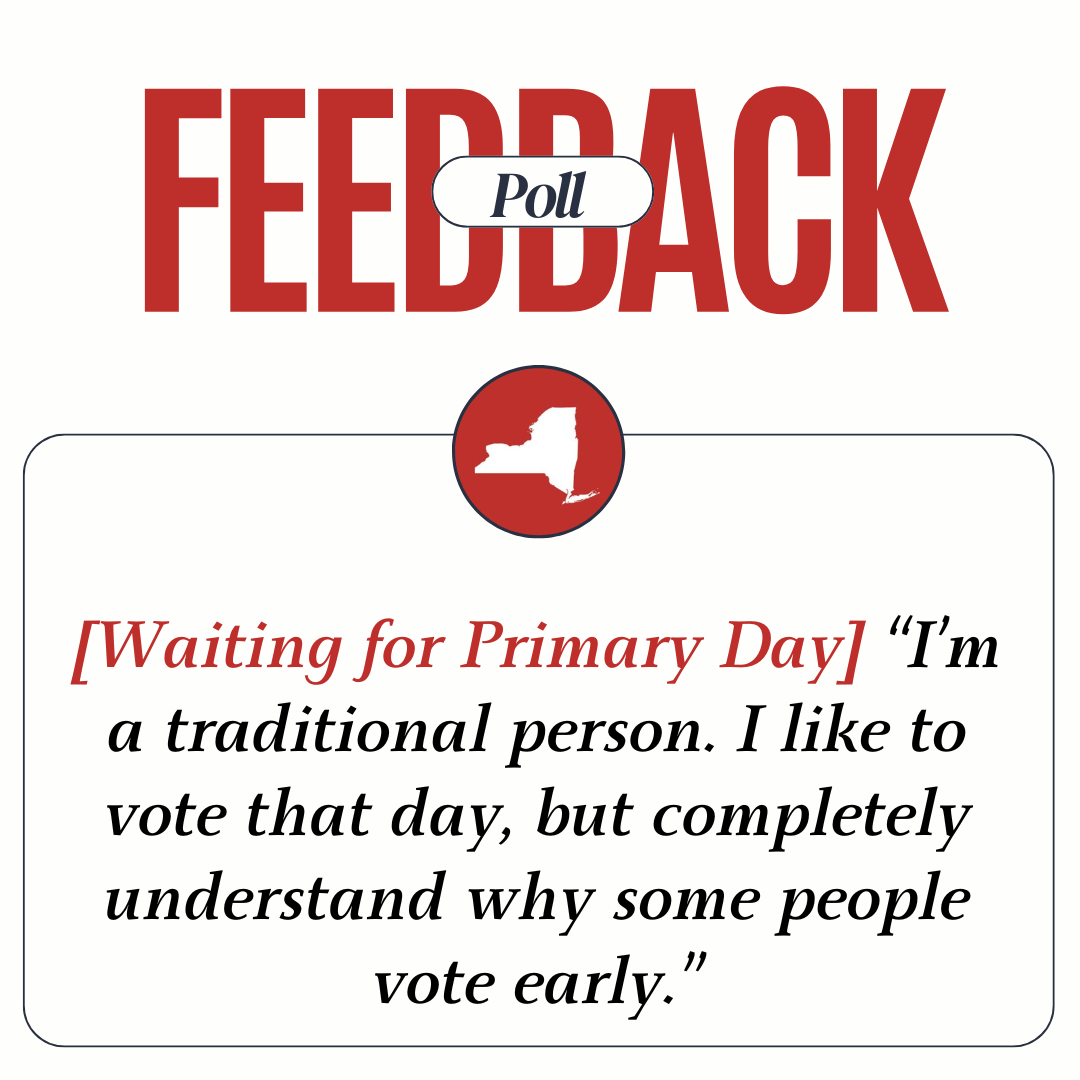 | 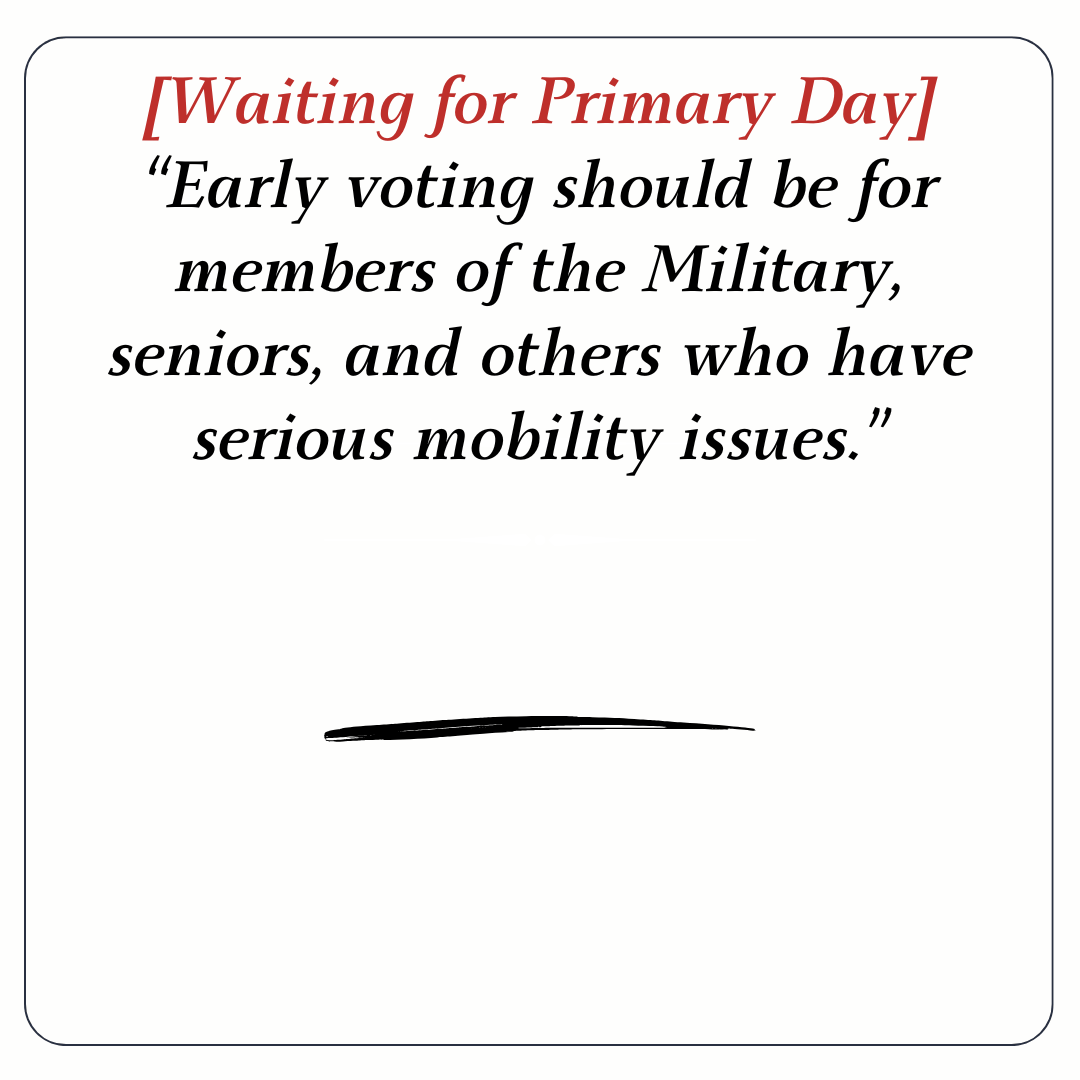 |

This Day in History
June 23, 1972: Six days after the Watergate break-in, President Nixon's chief of staff, H. R. Haldeman, proposes using the CIA to impede the investigation of the crime. | 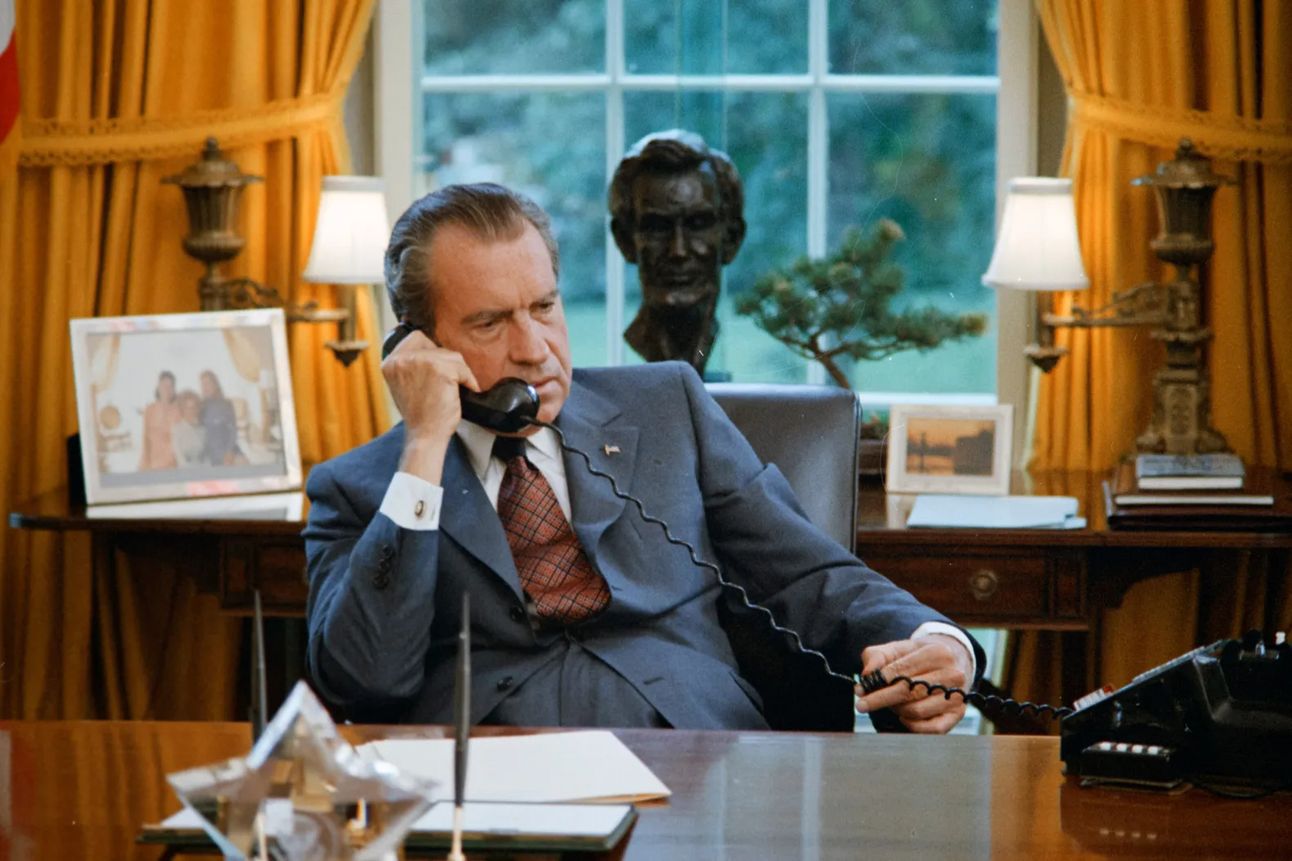 National Archives and Records Administration/History Channel |
News
Worth a Read
 | I Got Taken in BuffaloBuffalo didn’t just welcome me, it reminded me how rich, layered, and full of heart the “other” New York really is. I came looking for content, I left with a connection… |
Was our Monday Morning Memo forwarded to you? Subscribe here to get it sent right to your inbox.


